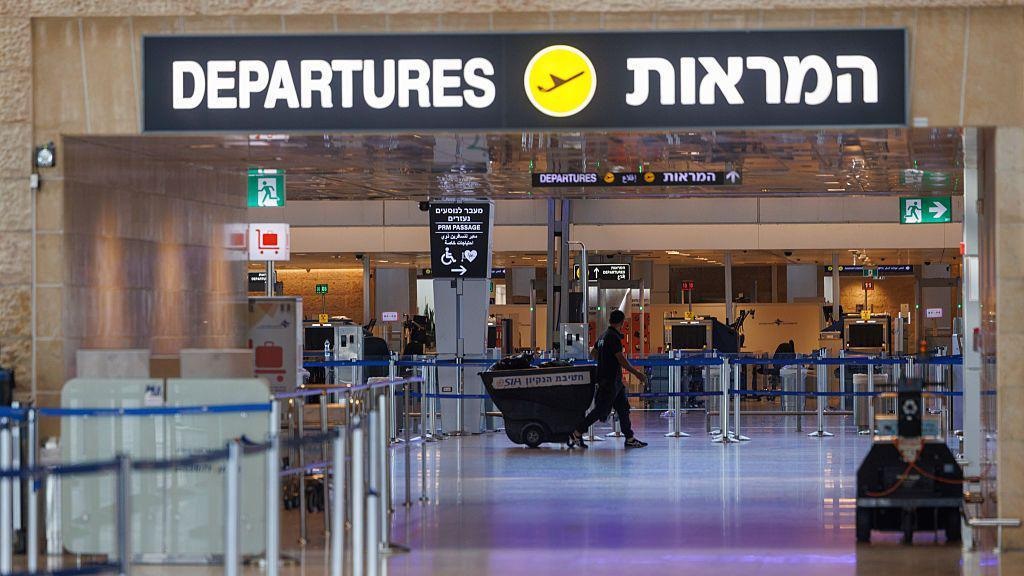The United Kingdom on Sunday, June 15, 2025, issued a heightened travel advisory warning against all travel to Israel, as military tensions between Israel and Iran continue to intensify.
The Foreign, Commonwealth and Development Office (FCDO) updated its guidance for both Israel and the Occupied Palestinian Territories.
It cited growing risks due to the exchange of missile strikes between the two nations.
The security situation has worsened considerably in recent days, prompting authorities to issue an urgent caution.
According to the FCDO, “The situation is evolving rapidly and poses serious risks to safety.”
Officials warned that conditions on the ground could deteriorate with little or no notice.
Those already present in Israel or the Palestinian Territories have been urged to remain vigilant, follow instructions from local authorities, and closely monitor updates.
The UK’s updated advisory reflects concerns about a wider regional conflict, with officials noting the potential for escalation across the Middle East.
The latest statement replaces earlier guidance that had discouraged travel only to specific parts of Israel.
On 13 June, following the declaration of a national emergency in Israel, the FCDO had changed its advice to recommend avoiding all but essential travel.
That guidance has now been further escalated to recommend against all travel entirely.
Foreign Secretary David Lammy emphasized the UK government’s focus on protecting British nationals in the region.
In a statement posted to social media platform X (formerly Twitter), Lammy wrote: “My message to British nationals there is clear – your safety remains our top priority.”
The FCDO has also maintained its longstanding recommendation advising against all travel to Iran, underscoring the growing instability in the region.
The sharp rise in tensions began with a new wave of Israeli military operations on the night of June 12.
Israeli officials claimed their latest strikes targeted Iranian military infrastructure, including facilities related to Iran’s nuclear program.
In response, Iran launched retaliatory airstrikes, triggering a rapid escalation in hostilities.
On Saturday night, Iranian missiles struck areas including Bat Yam and Tamra within Israeli territory.
In retaliation, the Israeli military reported that it had launched strikes on over 80 sites across Tehran overnight.
These developments signal a dangerous back-and-forth exchange that has significantly heightened regional anxiety.
Amid rising concerns, the UK government announced over the weekend that it would deploy additional Royal Air Force (RAF) jets to the Middle East.
British officials described the move as a “precautionary measure” intended to bolster the safety of UK assets and personnel in the region.
Chancellor of the Exchequer Rachel Reeves confirmed the deployment, emphasizing the importance of preparation given the unpredictable security environment.
In addition to the military and diplomatic fallout, the conflict is beginning to affect global markets.
On Friday, oil prices surged amid growing fears that the ongoing violence could disrupt supply chains from the Middle East, one of the world’s most critical energy-producing areas.
Investors are increasingly concerned that the conflict could spill over into neighboring nations or impact the flow of oil and gas through key shipping routes, such as the Strait of Hormuz.
The UK’s decision to issue a full travel warning for Israel reflects not only the direct dangers posed by ongoing attacks but also the broader unpredictability of the situation.
British nationals are being urged to reconsider any plans to visit Israel or the Palestinian Territories and to make immediate arrangements for safety if already in the region.
While diplomatic channels remain open, the pace and intensity of the current confrontation suggest that the conflict could escalate further, placing more civilians at risk and threatening regional stability.
The British government continues to monitor the situation closely and is expected to provide further updates as conditions evolve.
Officials have reiterated the importance of remaining informed, cautious, and prepared for rapid changes.







